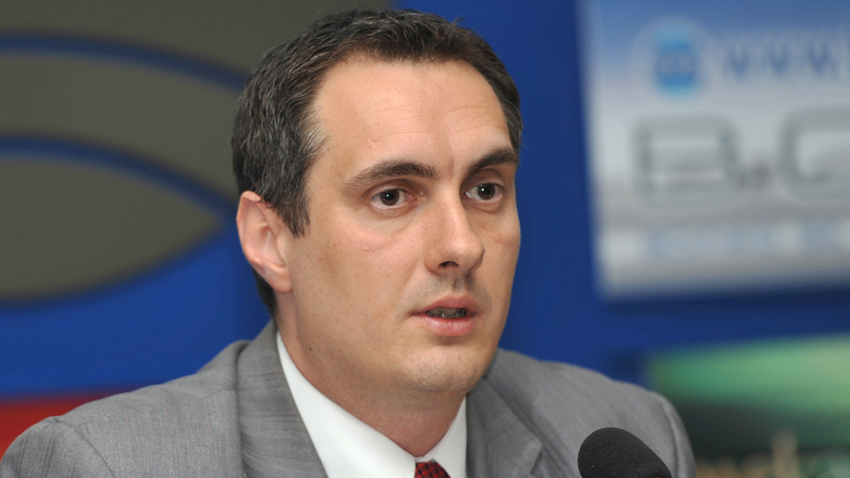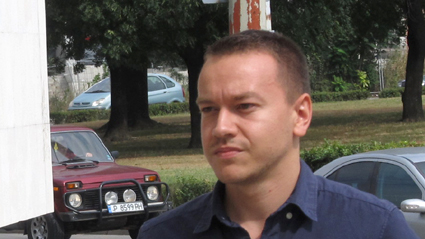“Vote buying and selling is a crime”. Each and every election campaign in Bulgaria ends with this reminder. Regretfully, this does not mean that these past elections have not been marred by vote buying. What effect the votes bought have had on the election returns is something no one has calculated. The Central Election Commission and the NGOs, monitoring the election process were notified of hundreds of instances of irregularities, even on polling day itself. But the instances when charges have been pressed are few and far between.
Transparency International, Bulgaria has been monitoring elections in Bulgaria for years, receiving and processing reports of election irregularities. Since the early morning of October 5, the day on which the snap elections for a new parliament in Bulgaria took place, citizens never stopped calling the Transparency International offices across the country, frequently reporting alleged vote buying. But where are the roots of this ugly phenomenon to be found? The answer from the organization’s Executive Director Kalin Slavov:
 “This is a phenomenon that has been spreading and taking root,” says Kalin Slavov. “In the process of our work we have established that politicians seem to be moving along a downward spiral, resorting to non-political methods to achieve election results. Even at these general elections, they seemed to have given up on any genuine election campaigning, sending certain messages to voters, debating, or commenting on the issues of the day that have been shaking society to its foundation. Vote buying is something that occurs because of the headlong degradation of Bulgarian society – beginning with ethics, with morals and the system of values and passing over to the problems that come up in our everyday lives.”
“This is a phenomenon that has been spreading and taking root,” says Kalin Slavov. “In the process of our work we have established that politicians seem to be moving along a downward spiral, resorting to non-political methods to achieve election results. Even at these general elections, they seemed to have given up on any genuine election campaigning, sending certain messages to voters, debating, or commenting on the issues of the day that have been shaking society to its foundation. Vote buying is something that occurs because of the headlong degradation of Bulgarian society – beginning with ethics, with morals and the system of values and passing over to the problems that come up in our everyday lives.”
Transparency International has made a study of vote buying with the help of sociologists, political analysts and psychologists, who have ascertained a sad and sorry truth - people in entire regions of the country are placed in the position of an almost feudal dependence on employers and loan-sharks who have been trading with the votes of their staff and of the people living in small towns and villages. Fear and despair is what motivates them to have no hesitation as to whether to take money in exchange for their vote.
 “Years ago vote buying started out among the Roma, whereas now the problem has been spreading to all ethnic groups,” says Kalin Slavov. This is an opinion shared by investigative journalist Rossen Tsvetkov. This ugly phenomenon that has been casting a shadow over democracy in Bulgaria for years is now invariably part of the news election coverage in this country, including with the help of Rossen Tsvetkov’s hidden camera. His latest investigation was aired on election day:
“Years ago vote buying started out among the Roma, whereas now the problem has been spreading to all ethnic groups,” says Kalin Slavov. This is an opinion shared by investigative journalist Rossen Tsvetkov. This ugly phenomenon that has been casting a shadow over democracy in Bulgaria for years is now invariably part of the news election coverage in this country, including with the help of Rossen Tsvetkov’s hidden camera. His latest investigation was aired on election day:
“The latest scam I worked on was not just for buying votes, but for buying off the polling station’s election board chairs, who are actually there to guarantee that voting is fair. But as it turns out they do not mind taking part in the vote buying in the least,” says Rossen Tsvetkov. “I have seen election scams perpetrated by absolutely all parties. There is no single player on the political market to have taken a back seat and just sat there watching. Everyone does it because they realize that if they refuse to take part they are bound to lose.”
One interesting aspect of Rossen Tsvetkov’s investigation actually shows that there may well be another early election in Bulgaria soon – the price of one vote this time round has actually “plummeted” down to BGN 50. In previous years the going price had reached 100, even 200. “It is obvious the political parties are getting ready for another general election and are holding onto their money,” the journalist comments.
English version: Milena DaynovaA Christmas tree with Bulgarian decorations has been placed in a central location at the Griffin Museum of Science and Industry in Chicago. For the fifth consecutive year, Bulgarians living in Chicago crafted the lavish decoration of the Bulgarian..
The usurpation of cultural heritage is one of the many inevitable consequences of any military conflict, both historically and today. Until the end of the war in Ukraine, it is impossible to adequately analyse the extent of the damage caused to the..
Athens plans to modernise the Greek army by 2030 Greece's Defence Minister Nikos Dendias presented the plan for changes in the army to the parties in parliament. The reforms will cover all three branches of the military. By 2030, 33 units..
The residents of Pleven (Central North Bulgaria) will bid farewell to 2024 with a Christmas Town and meetings with Santa Claus. This year's festive..
Modernizing critical thinking skills, fact-checking skills and media literacy are essential for society, especially for young people in Bulgaria - the..

+359 2 9336 661
